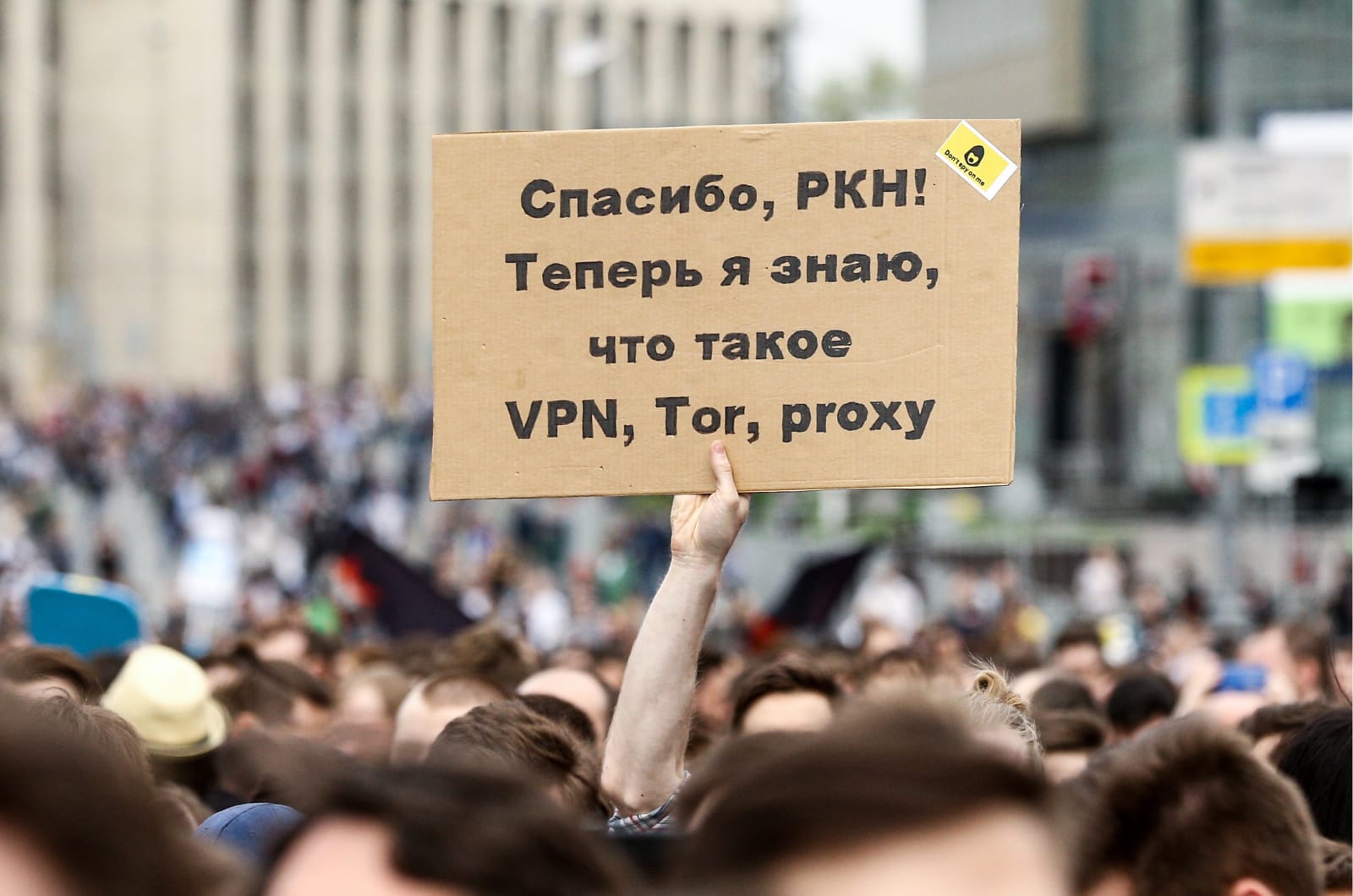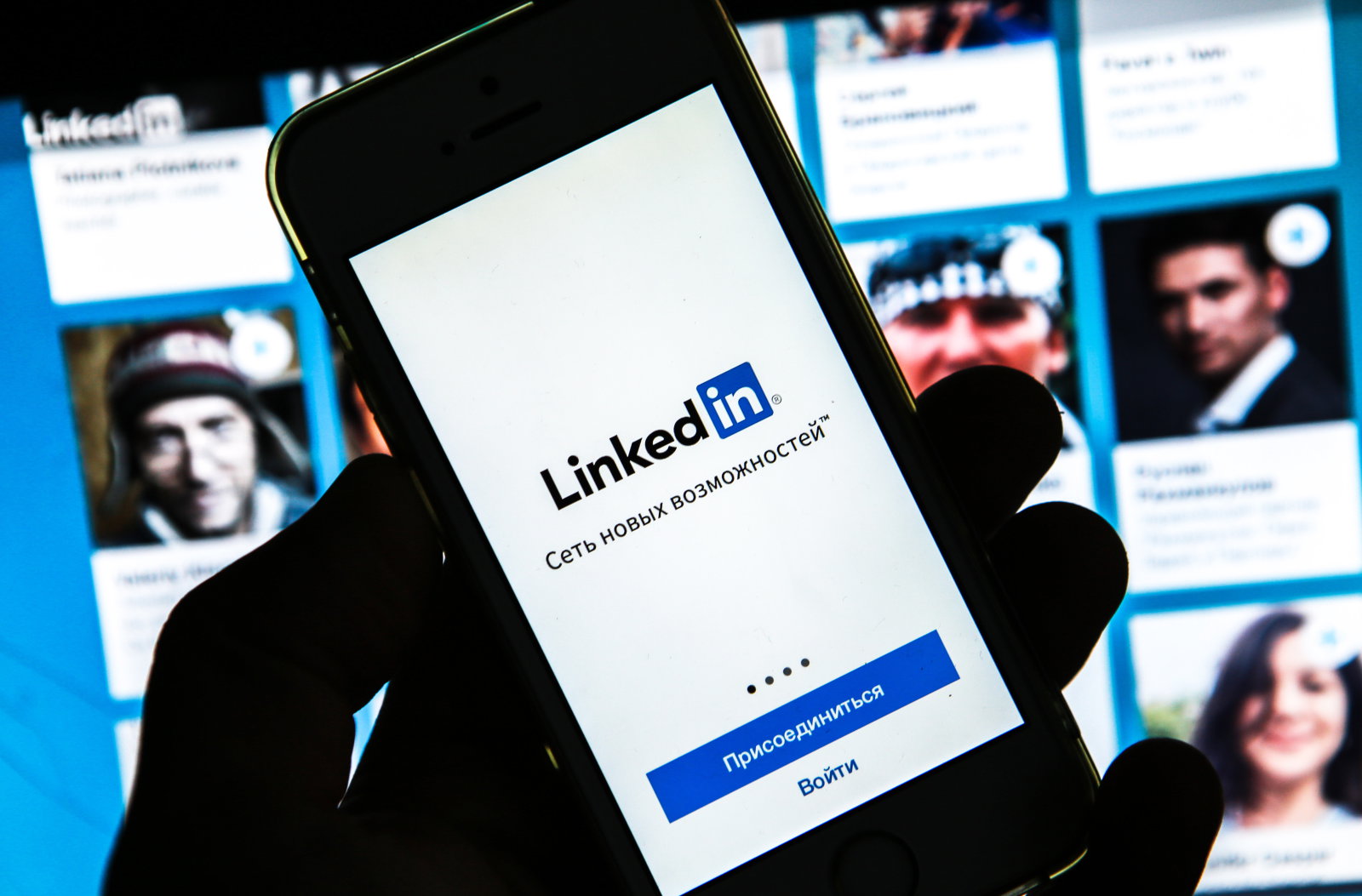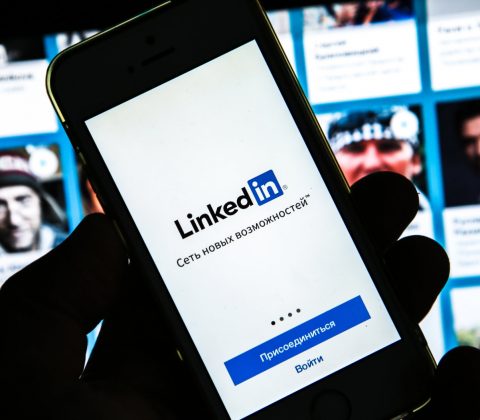Posts Tagged: Russia
The Morning After: Russia bans Apple devices for state officials
Russian authorities are banning government employees from using Apple devices for official state use, according to the Financial Times. As of Monday, the country’s trade ministry will prohibit the use of iPhones for all “work purposes.” Other agencies, including Russia’s telecommunications and mass media ministry, either have similar mandates already in place or plan to enforce some soon. The Financial Times reports the ban covers all Apple products – no, not Yuri’s AirPods, too? Well, officials will apparently be able to continue using those for personal use.
The ban comes after Russia’s Federal Security Service (FSB) claimed at the start of June it had uncovered a “spying operation by US intelligence agencies” involving Apple devices. The FSB said thousands of iPhones, including those in use by the country’s diplomatic missions in NATO countries, had been “infected” with monitoring software. The FSB claimed — without showing evidence — that Apple had worked closely with US signal intelligence to provide agents “with a wide range of control tools.” The company denies this. The move comes when Russia is also trying to reduce its dependence on foreign-made tech.
– Mat Smith
The biggest stories you might have missed
Microsoft and Sony agree to keep Call of Duty on PlayStation
Bluesky allowed people to include the n-word in their usernames
Larry Hryb, Xbox’s ‘Major Nelson,’ is leaving Microsoft
The NES at 40
Seven ways it changed the gaming world forever.
To celebrate Nintendo’s first home console’s anniversary, we’ve taken a closer look at some of the major ways it’s shaped gaming since 1983. That includes innovations (at the time!) like the d-pad, the idea of gaming franchises and game characters and mascots that have stood the test of time.
iOS 17 preview: FaceTime, everywhere
Plus, a better messaging experience.
Ahead of its full launch later this year, there's plenty to test out in the latest iOS beta. Its new StandBy feature might not be a smart display killer, but it’s possibly a free alternative. Other highlights include a revitalized FaceTime experience, a streamlined Messages app and a long-overdue solution for sharing contact details.
Elon Musk says Twitter’s ad revenue has dropped by 50 percent
"We're still negative cash flow."
To the shock of none, Elon Musk tweeted the company was suffering an approximate 50 percent drop in advertising revenue and heavy debt burden. According to an estimate research firm Sensor Tower shared with Bloomberg, advertising spending fell by 89 percent to $ 7.6 million during a two-month period earlier this year. The admission comes in the same week Twitter’s ad-revenue sharing program began paying out some creators, including a handful of controversial far-right influencers. On Friday, Musk also claimed the social network could see “all-time high device user seconds usage” sometime this week.
Apple’s first M3 Macs could arrive in October
There may be new iMac and MacBook Air models.
Writing in his latest newsletter, Bloomberg’s Mark Gurman reports there “should be another launch” after the company’s annual iPhone event in September, with a new slate of Macs likely the focus of whatever Apple has planned. “October is too early for new high-end MacBook Pros or desktops, so the first beneficiaries of the new [M3] chip should be the next iMac, 13-inch MacBook Air and 13-inch MacBook Pro,” he notes.
In the past, Apple has typically announced new iPad models alongside its latest Macs, but it sounds like that won’t be the case this time. “I wouldn’t expect any major upgrades until the M3 iPad Pros with OLED screens arrive next year,” Gurman writes.
Assassin's Creed haptic shirt will give you 'exclusive sensations never felt before'
Don’t want to feel like I’m being stabbed though, thanks.
Ubisoft has teamed up with OWO to release an Assassin's Creed Mirage edition haptic feedback shirt. You'll apparently be able to feel parkour, impacts and "exclusive sensations never felt before" — yes, really. You might want to close the door while you're playing, from the sound of it. OWO's shirt includes haptic points on your chest, stomach, lower back and arms. The trick is an algorithm that adjusts nine wave parameters to simulate interactions ranging from the wind to a dagger. Details of pricing and release date are TBC, but it will work with PS4, PS5, Xbox One, Xbox Series X/S and PC. The game comes out October 12th, and the OWO shirt will include a game code. OWO's Founder Edition shirt sold for a heady €499 ($ 560).
This article originally appeared on Engadget at https://www.engadget.com/the-morning-after-russia-bans-apple-devices-for-state-officials-111540456.html?src=rss
Engadget is a web magazine with obsessive daily coverage of everything new in gadgets and consumer electronics
Nintendo officially halts all eShop sales in Russia
Last year, Nintendo put its eShop in "maintenance mode" in Russia, which prevented access to the eShop for customers in the country. Now, the company is making it official: Nintendo is halting all sales in Russia.
Nintendo of Europe announced that as of May 31st, 2023, the company will halt all new eShop sales in Russia. This means that you won’t be able to make any new purchases from the store or redeem digital codes. Nintendo says all credit card information and PayPal details will be deleted for security reasons and that you won’t be able to create new Nintendo Accounts as long as Russia is set as the country.
The good news is users with a Russian eShop account will still be able to download previously-purchased games and DLC "for the foreseeable future." It’s unclear at this time how long Nintendo plans on keeping the eShop available for these users.
"As of May 31, 2023, and for the foreseeable future, Russian customers with an existing Nintendo Account will be able to redownload digital content that they have previously purchased. It will not be possible to make any new purchases or use download codes within [the] Nintendo eShop in Russia."
We’ve reached out to Nintendo for additional comment and will update this story when we’ve heard back.
Both Microsoft and Sony halted all sales from Russia over a year ago as a result of Russia's invasion of Ukraine. Game studios such as Epic, Activision Blizzard and EA made similar moves and halted sales in the country at around the same time. Nintendo joining the mix means that no major console makers currently allow its Russian users to purchase new games in the country.
This article originally appeared on Engadget at https://www.engadget.com/nintendo-officially-halts-all-eshop-sales-in-russia-204548768.html?src=rss
Engadget is a web magazine with obsessive daily coverage of everything new in gadgets and consumer electronics
Internet backbone provider Cogent cuts off service to Russia
Cogent Communications, an internet backbone provider that carries approximately 25 percent of all global web traffic, has begun cutting ties with Russian businesses in response to the country’s invasion of Ukraine. The company told The Washington Post it was doing so to prevent the Kremlin from using its network to carry out cyberattacks and spread misinformation about the ongoing conflict.
“Our goal is not to hurt anyone. It’s just to not empower the Russian government to have another tool in their war chest,” Cogent CEO Dave Schaeffer told the outlet, adding “it was a tough decision.” In a statement to ZDNet, the company said it was also complying with European Union sanctions against Russia Today and Sputnik. “Cogent is not otherwise restricting or blocking traffic originating from or destined for Russia. Cogent continues to provide services to Ukraine,” the company added.
The move is expected to disrupt and slow down internet connectivity. Some of Cogent’s Russian clients include state-owned telecom operator Rostelecom, one of the country’s largest internet providers, and wireless carriers Megafon and Veon. Cogent said it was working with some of those companies to provide them extensions.
WTF Cogent? Cutting Russians off from internet access cuts them from off from sources of independent news and the ability to organize anti-war protests. Don't do Putin's dirty work for him. https://t.co/uqbgOFYWX9
— Eva (@evacide) March 4, 2022
Some experts worry the move will also prevent Russians from accessing information that doesn’t come from the Kremlin. “I would like to convey to people all over the world that if you turn off the Internet in Russia, then this means cutting off 140 million people from at least some truthful information,” Mikhail Klimarev, the executive director of Russia’s Internet Protection Society, told The Washington Post. “As long as the Internet exists, people can find out the truth. There will be no Internet — all people in Russia will only listen to propaganda.”
To that point, Russians already can’t access Facebook and Twitter after the country’s government moved to restrict those platforms. They may soon lose access to Wikipedia as well.
Russia demands large tech companies set up local offices by 2022
Russia is getting serious with demands that foreign tech companies set up shop within its borders. Reuterssays the country's telecom regulator Roskomnadzor has called on 13 foreign and mostly American companies to launch official Russian presences by 2022 so they can comply with a law that took effect July 1st. The list includes familiar tech names like Apple, Google, Meta (Facebook), Telegram, TikTok and Twitter.
The law demands local offices for "internet companies" with over 500,000 daily users. Some of the companies already have offices, though, and it's unclear just what constitutes an official presence. Those deemed violating the law could be subject to either complete bans or limits on their ads, data gathering and money transfers.
As you might have guessed, the concern is that Russia might use the law to wield more control over those companies and their content. Russia has clashed with Apple multiple times, for instance, including a fine for allegedly abusing App Store dominance — this law might give officials more leverage. The move might also help Russia pressure companies into censoring content the government deems objectionable, such as social media posts backing the political opposition to Putin's regime.
The announcement makes a tricky situation that much more difficult. Russia is a significant market some companies can't always afford to lose but honoring the request could also mean enabling censorship and other rights abuses. Companies may soon have to make decisions that are painful regardless of the outcome.
Commerce Department limits sale of hacking tools to Russia and China
The US Commerce Department has announced new rules related to the export and resale of cyber intrusion software. Once the limits come into effect in 90 days, companies that want to sell their hacking tools to countries “of national security or weapons of mass destruction concern” will need to obtain a license from the department’s Bureau of Industry and Security (BIS). The policy also covers nations that are under a US arms embargo.
Per The Washington Post, the rule is complicated. There are already many limitations on the export of intrusion software. Similarly, there are opportunities for companies to obtain exceptions. The main point is that the policy would cover the sale of software to countries like China and Russia. It would also limit the sale of programs like NSO’s Pegasus spyware, which some governments have used to target dissidents and journalists.
“The United States Government opposes the misuse of technology to abuse human rights or conduct other malicious cyber activities, and these new rules will help ensure that US companies are not fueling authoritarian practices,” the Commerce Department said.
Among the 42 countries involved in the Wassenaar Arrangement, a pact that sets voluntary export controls on military and dual-use technologies, the US is one of the last to impose limits on the sale of hacking software. Part of the reason for that is that the country has spent years working on the rules to ensure they don’t prevent cybersecurity researchers across the globe from working together to discover new flaws.
Russia busts card fraud ring that included an infamous hacker

Engadget RSS Feed
Russia tests new Soyuz rocket by sending a humanoid robot to the ISS

Engadget RSS Feed
Russia to start blocking major VPNs after censorship refusal

Engadget RSS Feed


The Morning After: TESS takes off and Russia battles Telegram
 Hey, good morning! You look fabulous. Twitch has a tiny Russian problem, and Intel has pulled the plug on its smart glasses. We also have an update on what Pornhub is (not) doing about deepfake videos and everything you need to know about last night…
Hey, good morning! You look fabulous. Twitch has a tiny Russian problem, and Intel has pulled the plug on its smart glasses. We also have an update on what Pornhub is (not) doing about deepfake videos and everything you need to know about last night…
Engadget RSS Feed
White House also blames Russia for NotPetya attacks

Engadget RSS Feed
NBC: Russia ‘considers’ sending Snowden back to US
A report by NBC News cites unnamed US intelligence sources claiming that Russian officials are deliberating a handover of Edward Snowden as a "gift" to the Trump administration. Since leaking information on the NSA's "PRISM" surveillance, the former…
Engadget RSS Feed


Russia is blocking LinkedIn
 While LinkedIn is still waiting for the ink to dry on Microsoft's $ 26.2 billion deal, the Russian government is gearing up to ban the professional networking site altogether. As the New York Times reports, a local court in Moscow has ruled that Linke…
While LinkedIn is still waiting for the ink to dry on Microsoft's $ 26.2 billion deal, the Russian government is gearing up to ban the professional networking site altogether. As the New York Times reports, a local court in Moscow has ruled that Linke…
Engadget RSS Feed
Russia plans to build its largest data center on top of a nuclear power plant
While most of the world still balks at the notion of using nuclear energy to power large-scale enterprises, Russia recently announced plans to build what could be its largest data center right on top of the Kalinin nuclear power plant.
The post Russia plans to build its largest data center on top of a nuclear power plant appeared first on Digital Trends.



 It's no secret that the lines between state-sponsored hacking and cybercrime are fuzzy. After all, relying on professional crooks offers plausible deniability if the intruders are ever caught. However, it's now apparent that those lines sometimes dis…
It's no secret that the lines between state-sponsored hacking and cybercrime are fuzzy. After all, relying on professional crooks offers plausible deniability if the intruders are ever caught. However, it's now apparent that those lines sometimes dis…